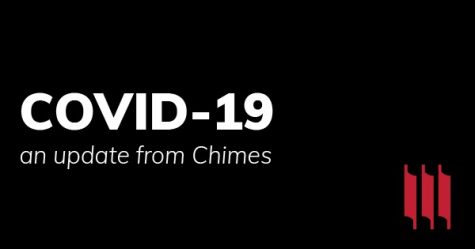Robust Christians in Both Heart and Mind
Integration of faith in the classroom is what makes Calvin unique. It draws so many people to this school, providing a place to understand what it means to be not just a Christian and a teacher, engineer or nurse, but what it means to be a Christian chemist, a Christian geographer, a Christian artist. Throughout my four years at Calvin, my peers and I have discussed how we feel this piece is somehow missing. We’ve witnessed many faculty struggling to make sense of how to teach both their subject material as well as how Christianity relates to it; in some places it’s far easier than in others. After all, most professors are (rightly) hired for knowledge of their subject matter, not for a seminary or theology degree.
In speaking with several professors about this topic, they all mentioned that while they were not hired based on their credentials of “religiosity,” they were all required to write faith statements discussing the importance of faith in both their lives and their teaching style. In some cases, professors would add their discipline to that list, but only rarely. This quickly led to the distinction of two facets of faith integration: in general classroom interaction with students and specifically in the pedagogy of their discipline. While many professors are successful in faith development through classroom interactions, whether by doing a devotion at the beginning of class or leading students in a prayer, integration in the pedagogy of their specific discipline is still too often missing.
I have found that many professors are eager to talk about this; they are thrilled by the opportunity to craft a new educational path for their students, one that they themselves were not able to receive. After this initial spark, however, the flame dies down under the question, “How?” Professors, like students are burdened by a lack of time. Chemistry professor Chad Tatko even posed the question, “Are we willing to take an A- on a [standardized] exam and come out looking to the rest of the world like we’re not as good, and have had a solid discussion about how to be a Christian [in our subject area]?” Professors are fighting to find the balance between including the subject material they must teach to produce world-ready professionals and the subject material they must teach to produce world-ready Christian professionals. With few exceptions, the balance always leans to the first.
Calvin has wonderful faculty; many professors say that their faith motivates them to teach and to study their subject matter. Calvin asks professors to make this implicit faith motivation explicit, in community with peers, professors of other disciplines, and most importantly, their students. Professor Tatko mentioned, “I have the most hope in students because they’re not trapped in habit or history. They have the potential to make better decisions, and it’s up to the faculty to push them to make better decisions.”
Historically, as music professor Benita Wolters-Fredlund mentioned, “Calvin students, like any students, are preoccupied by tests. If it’s not tested material, then it doesn’t stick.” This is changing. As Calvin takes in more and more students from outside the CRC, they come here not out of tradition, but because they are seeking an understanding and a discussion of how to be a Christian both in their lives and in their careers, a discussion they perhaps haven’t found elsewhere.
In the classroom, having an open discussion about this integration of faith and discipline between the students and professors is vital. Classroom structures can naturally discourage this discussion, with a careful social contract at play and professors in places of power. But when discussing faith integration, professors and students need to be on the same playing field, exchanging ideas as peers, as equals. This is the place to point out the evidence of God in your discipline, to point out the evidence of evil, and to ask students to do the same. This is the place for humility and radical democratization.
This integration in discipline is how we make students that are different from the rest of the universities in the world. Calvin’s mission is to produce students and faculty who are robust Christians in both heart and mind, who understand what it means to engage God through a career, whatever the discipline. We need to carve out sacred time to make sure we don’t miss this opportunity that can be found in few other places in the world. It’s not on just the teachers to tell students how to do it, it’s up to students as well. It’s not about adding more courses or credit hours; it’s about fulfilling Calvin’s original mission in the way that each and every student and faculty member moves forward. It won’t be neat and it won’t be perfect, but there is no margin to leave this alone any longer.
Special thanks to Professors Benita Wolters-Fredlund, Christopher Hartemink, Chad Tatko, Jason VanHorn, Mark Mulder, and Thomas Thompson for their input and willingness to engage in this discussion with me.






